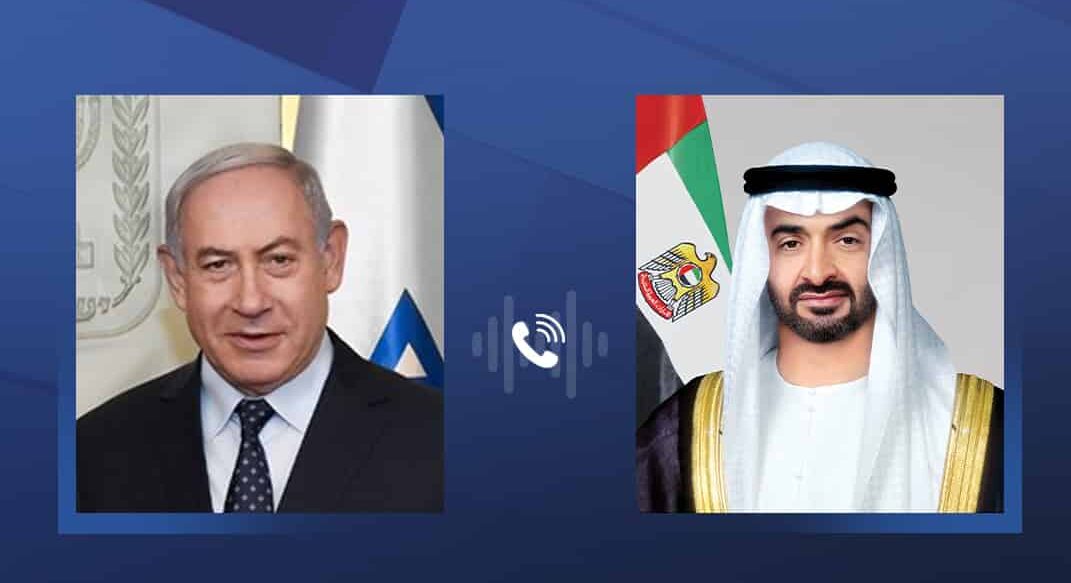Abu Dhabi, UAE – The UAE president Sheikh Mohamed bin Zayed Al Nahyan received a phone call from Benjamin Netanyahu, Prime Minister of Israel, during which they discussed bilateral relations.
Sheikh Mohamed affirmed the UAE’s ongoing commitment to ties with Israel, describing their cooperation as a strategic approach to peace and development. He also expressed the UAE’s willingness to augment efforts to further develop the relationship.
The UAE president told Netanyahu that the Abraham Accords provide an effective framework to further foster bilateral cooperation, and emphasized the UAE’s continued effort to collaborate across multiple fields and sectors.
He also pointed to the Comprehensive Economic Partnership Agreement between the countries, which came into effect April 1, 2023, as well as the joint efforts on climate action.
The UAE is holding COP28 this year to discuss the global response to climate change.
Sheikh Mohamed assured the Israeli PM that the UAE will work with Israel, fellow Arab nations, and international partners to avoid regional escalation and chart a path to peace and stability.
A separate statement from Netanyahu’s office said the two leaders agreed to “continue the dialogue between them in a personal meeting in the near future.”
The call follows a series of actions and statements by Netanyahu’s right-wing coalition government that have angered Arab leaders and elicited criticism from the United Arab Emirates (UAE). One source of contention is Israel’s continued settlement policy in the occupied West Bank, which is seen by Palestinians and many Arab countries as a violation of international law.
The region has seen a sharp increase in violence in recent months, particularly in Jerusalem and the West Bank, and there are concerns that tensions may escalate further during the Muslim holy month of Ramadan, which coincides this year with the Jewish holiday of Passover and Christian Easter.

